Clock
A large analogue clock to use for telling the time practice with the whole class.
Here are some ideas for questions. Click on a question to have it appear below the clock. The text of the question can then be edited so that it better meets the needs of your students.
- What time is it now?
- How long is it until the top of the next hour?
- How long is it until twelve o'clock?
- How many minutes have passed since 1 o'clock?
- What time will it be after another 41 minutes?
- What time will it be after another 76 minutes?
- What time will it be after another 5 hours and 41 minutes?
- What time was it 21 minutes ago?
- What time was it 70 minutes ago?
- What time was it 239 minutes ago?
- What fraction of the current hour has passed?
- What time would the hands appear to show if this clock was viewed in a mirror?
- At exactly which times are the hands of the clock pointing in the same direction?
- At exactly which times are the hands of the clock pointing in opposite directions?
- At exactly which times are the hands of the clock perpendicular?
It can be quite tricky answering the questions above when time is ticking away. The buttons below can be used to freeze the clock on the current time or set it for a specific time.
Set the clock to :
The solutions to this and other Transum puzzles, exercises and activities are available here when you are signed in to your Transum subscription account. If you do not yet have an account and you are a teacher or parent you can apply for one here.
A Transum subscription also gives you access to the 'Class Admin' student management system and opens up ad-free access to the Transum website for you and your pupils.
Many more activities can be found on the Time topic page.
This is the main Transum help video on Time.
The code for this clock was adapted from javascript made available by w3schools.com. The time showing is the time of your computer clock so if you think it is not correct you could adjust the time on your computer.
Do you know how to use a calculator to do calculations with times? Have a look at Calculator Workout Skill 12.
Do you have any comments? It is always useful to receive feedback and helps make this free resource even more useful for those learning Mathematics anywhere in the world. Click here to enter your comments.
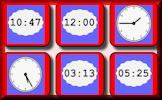
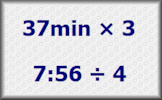
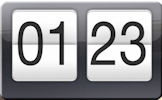
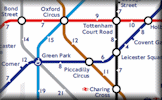
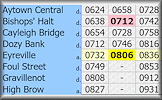
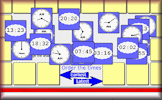
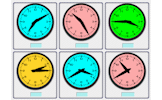

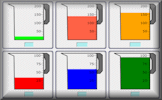


James Etheridge, Twitter
Tuesday, March 26, 2019
Transum,
Sunday, September 20, 2020
"Shakespeare didn't get all his facts correct. Cassius, in the play Julius Caesar said "The clock hath stricken three" a millennium or so before mechanical clocks were invented!"